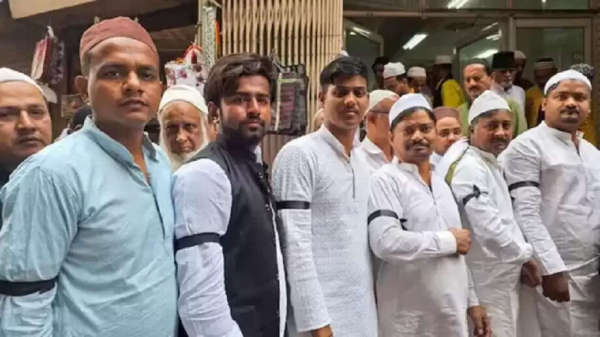
The central government has introduced the Waqf Amendment Bill (Waqf Amendment Bill 2025) in the Lok Sabha. Discussion on this is going on. This bill was also introduced in August last year. There were protests all over the country regarding this, after which the bill was sent to the JPC
It was debated in the JPC for several days. Later, 14 amendments of the NDA MPs were approved by the JPC. At the same time, 44 amendments of the opposition were rejected. In February 2025, the Modi cabinet approved the bill with amendments. It was tabled in the Lok Sabha on Wednesday. The debate on it is going on in the House. Let us look at some important points of the bill introduced by Kiren Rijiju in the Lok Sabha.
1. According to the new bill, the Waqf Board has got a new name. It will be known as Unified Waqf Management Empowerment Efficiency and Development i.e. UMEED.
2. Earlier there was a law that any person could give his property to Waqf. The condition in the old bill was that the person giving the property should be a follower of Islam for at least 5 years. Also, he should be the owner of that property. But in the new bill, now he will have to prove that he has been following Islam for 5 years. The property is his own and there is no dispute involved in giving it to Waqf.
3. Earlier there was a law that any person could give his property to Waqf. The condition in the old bill was that the person giving the property should be a follower of Islam for at least 5 years. Also, he should be the owner of that property. But in the new bill, now he will have to prove that he has been following Islam for 5 years. The property is his own and there is no dispute involved in giving it to Waqf.
4. Under the new bill, the court can now hear any appeal related to Waqf even after 6 months of the implementation of the law. Provided the applicant proves that he had a valid reason for the delay.
5. Complete details of the land given in Waqf must be submitted on the portal and database within 6 months. If the donor satisfies the tribunal on the reason for the delay, then in some cases this period can be extended.
6. In the old Waqf law, it was such that if a property is being used for charity or religious purposes for a long time, then it will be considered a Waqf. Even if there is no paper related to it. Examples of this are mosques and graveyards. In the old bill, there was talk of removing this rule completely, but there was a possibility of property dispute due to this. In the new bill, it has been said that now this rule will be applicable after 2025. That is, properties already registered as 'Waqf by User' will remain Waqf. Provided there is no dispute on them or they are not government land.
7. In the old bill, the collector i.e. the district magistrate was given the authority to investigate the Waqf property. But in the new bill, now an officer above the post of the collector will do this investigation. That officer will give his report to the state government.
8. Complete data of the land given in Waqf will be available online. Who has donated which land. Where did he get it from. How much does Waqf earn from it. How much salary does Mutawalli get for his supervision, all this information will be available online.
9. It will not be necessary for the MPs and former judges appointed in the Waqf Board to be Muslim. The state Waqf Board will also have 2 Muslim women and 2 non-Muslim members. It will be mandatory to give place to one member each from Shia, Sunni and backward Muslims. There should also be one member each from Bohra and Aagakhani communities.
10. Section 40 of the old law has been abolished. Under this, the Waqf had the right to declare any property as its property.
11. A separate Waqf Board will be formed for Bohra and Agkhani Muslims. This provision was not there in the old law. It has been added in the new bill.
12. The Bill also allows the Central Government to make rules regarding registration of Wakfs, publication of accounts and publication of proceedings of Wakf Boards.
13. No land without papers will be considered Waqf land. Earlier mosques and graveyards were considered Waqf land even without papers. Now this will not happen.
14. The new bill also has provisions for disqualifying a Mutawalli. No Mutawalli will be eligible to hold this post if,
- He is under 21 years of age.
- Is mentally ill or bankrupt.
- Has been convicted of a crime and sentenced to at least two years of imprisonment.
- Has been convicted of encroachment on any Waqf property.
- Has ever been removed from the post of Mutawalli.
15. The Waqf Board will have to submit a report on improvement in management and income within 6 months. This will ensure timely action.
PC:Lallantop